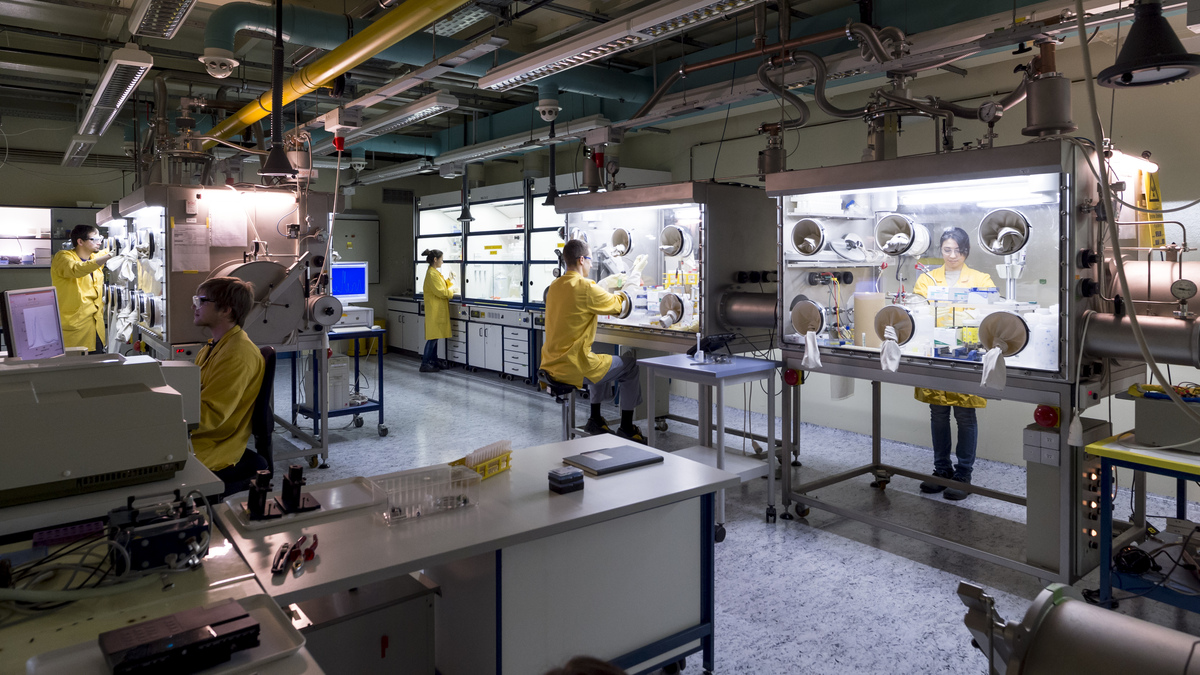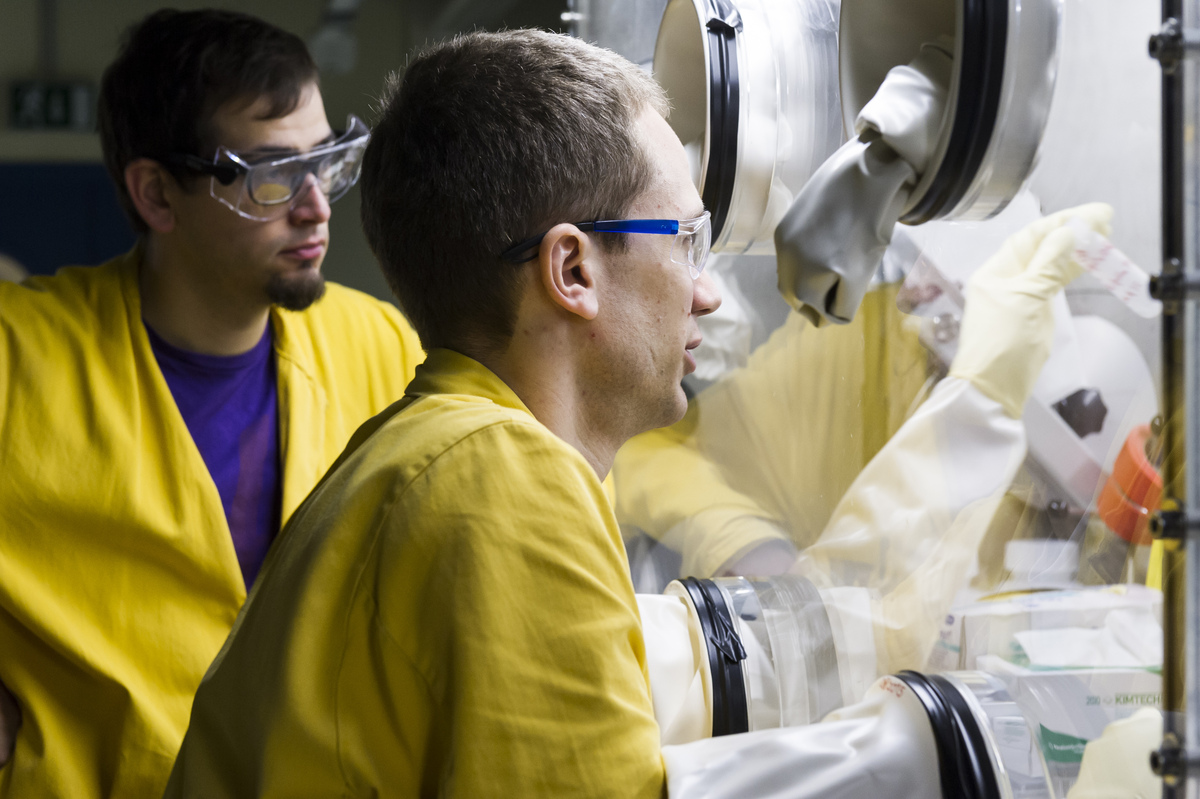Aquatic Chemistry and Thermodynamics of Actinides and long-lived Fission Products
The research of our group (lower photo on the right-hand side - from left to right, top row: Ryutaro Tonna, Peter Szabo, Fabio Furcas (guest scientist, Empa, Switzerland), Rosa E. Guidone, Fabian Greb, Christian Kiefer, Alexios Prein (Master student), Julius Wolf (Master student), David Fellhauer; bottom row: Xavier Gaona, Felix Häusler, Paul Fürst, Hyunjin Jee (guest undergraduate student, KONIKOF Program, South Korea), Sarah Duckworth (main activities within Interface chemistry group), Nese Cevirim-Papaioannou, Nils Huber) is dedicated to the investigation of the chemical behaviour of radionuclides in aqueous systems of relevance in the context of nuclear waste disposal. The main focus is on solubility phenomena of long-lived actinides (Pu, Np, U), fission and activation products (Tc, Sn, Zr, Nb, Ni), as well as chemotoxic (e.g., Be, Pb) and other elements of relevance in the context of nuclear waste (Fe). These activities involve the analysis of equilibrium reactions between solubility-limiting radionuclide solid phases and the aqueous radionuclide species, complexation with relevant ligands and redox reactions. The approach considered to tackle these complex systems strongly relies on classical solution chemistry methods (e.g., solubility experiments, absorption spectroscopy), in combination with solid phase characterization methods and advanced spectroscopic techniques such as time-resolved laser fluorescence spectroscopy (TRLFS) or X-ray absorption spectroscopy (XAFS). Our experimental studies are systematically performed as function of various solution parameters, in order to cover the geochemical boundary conditions expected for the different deep geological repository concepts. A specific research line is dedicated to the impact of elevated temperature conditions on the solution chemistry of radionuclides which may result from the decay of heat-generating nuclear waste in a repository. Our studies provide an adequate process understanding and thermodynamic description of the investigated radionuclide systems, including the evaluation of activity models (SIT, Pitzer). The corresponding data are the basis for thermodynamic databases and geochemical calculations, which play a key role in the long-term safety assessment of nuclear waste repositories.
Our research group also contributes to several national projects in the context of the German Site Selection Procedure (e.g., ParFrei, AbStand, all funded by BGE), and provides support and expert advise to BGE in the context of the Asse II salt mine. Several members of the Aquatic Chemistry group participate in the development of the national thermodynamic reference database for actinides and fission products (THEREDA project). The expertise of our group in this field is further reflected in key contributions to highly relevant international projects, such as the OECD NEA–TDB thermodynamic series, the ThermoChimie database, the IUPAC Subcommittee on Solubility and Equilibrium Data, or the update of the Plutonium Handbook edited by the American Nuclear Society, among others. Our group has also on-going, long-lasting collaborations with research groups and waste management organizations world-wide.
Contact:
| Dr. Xavier Gaona | Dr. David Fellhauer |
| +49 721 608 26134 | +49 721 608 29329 |



